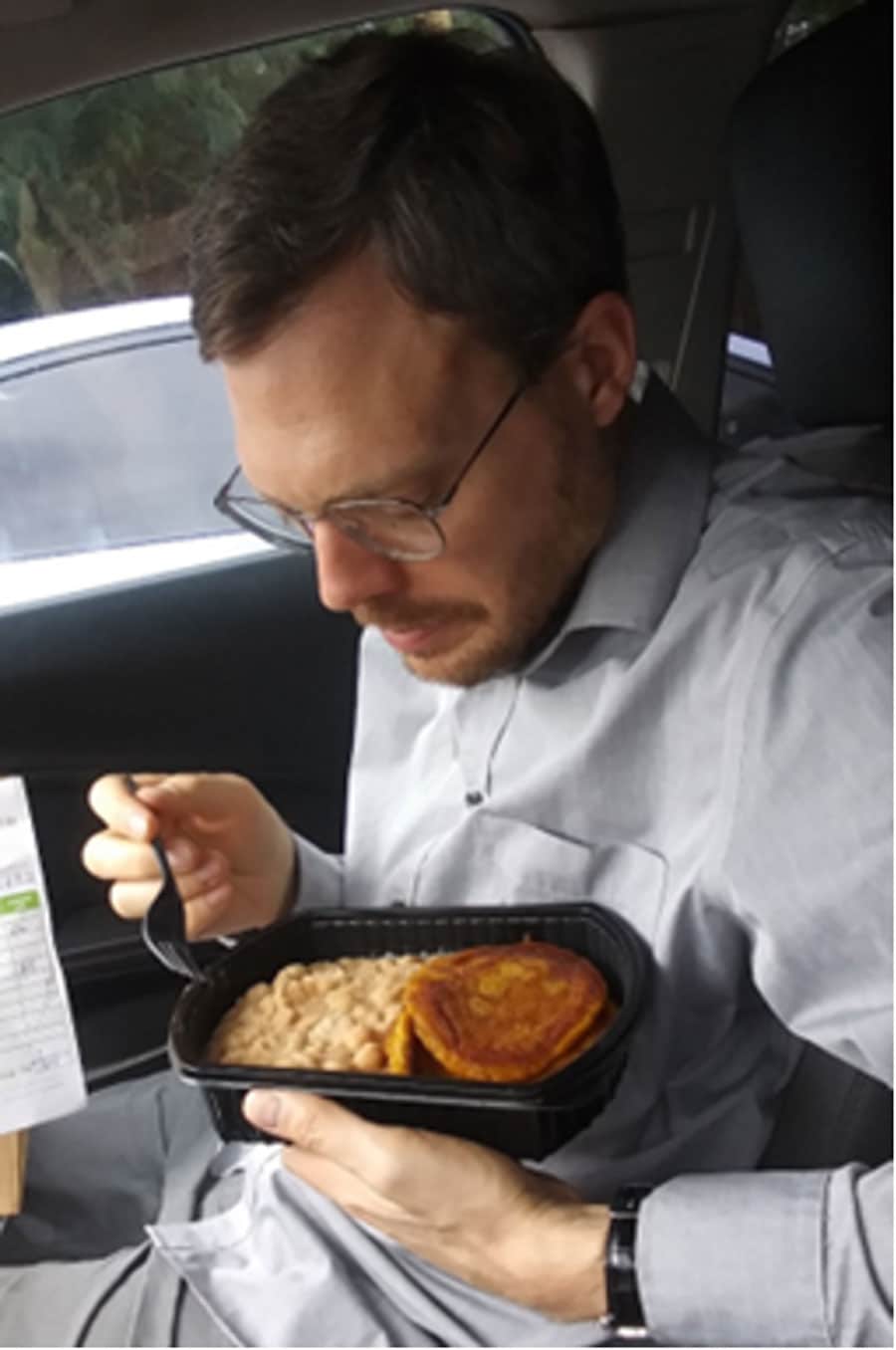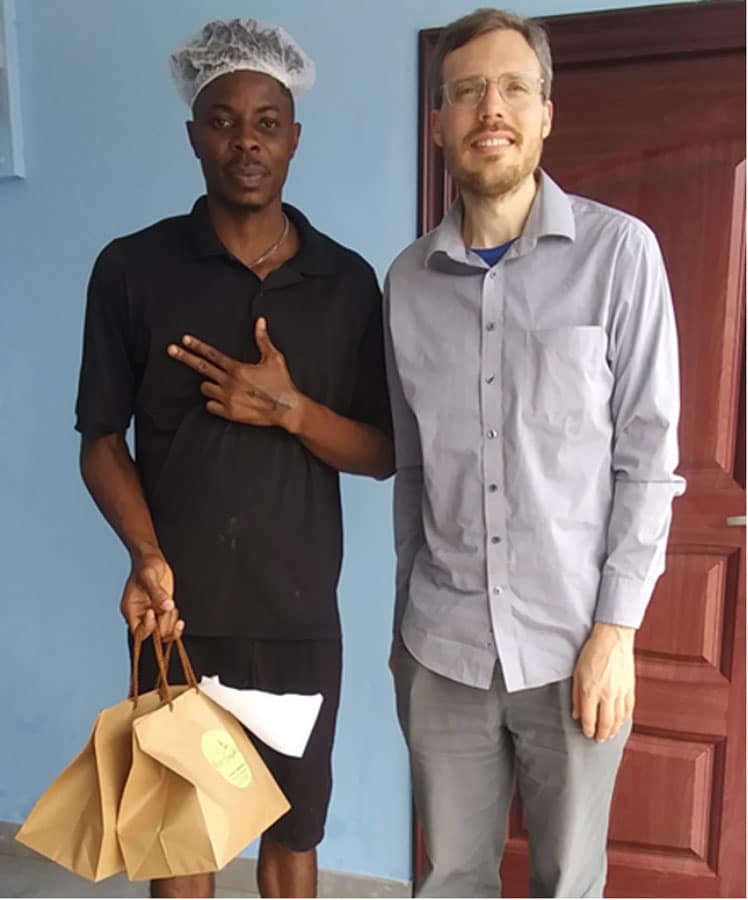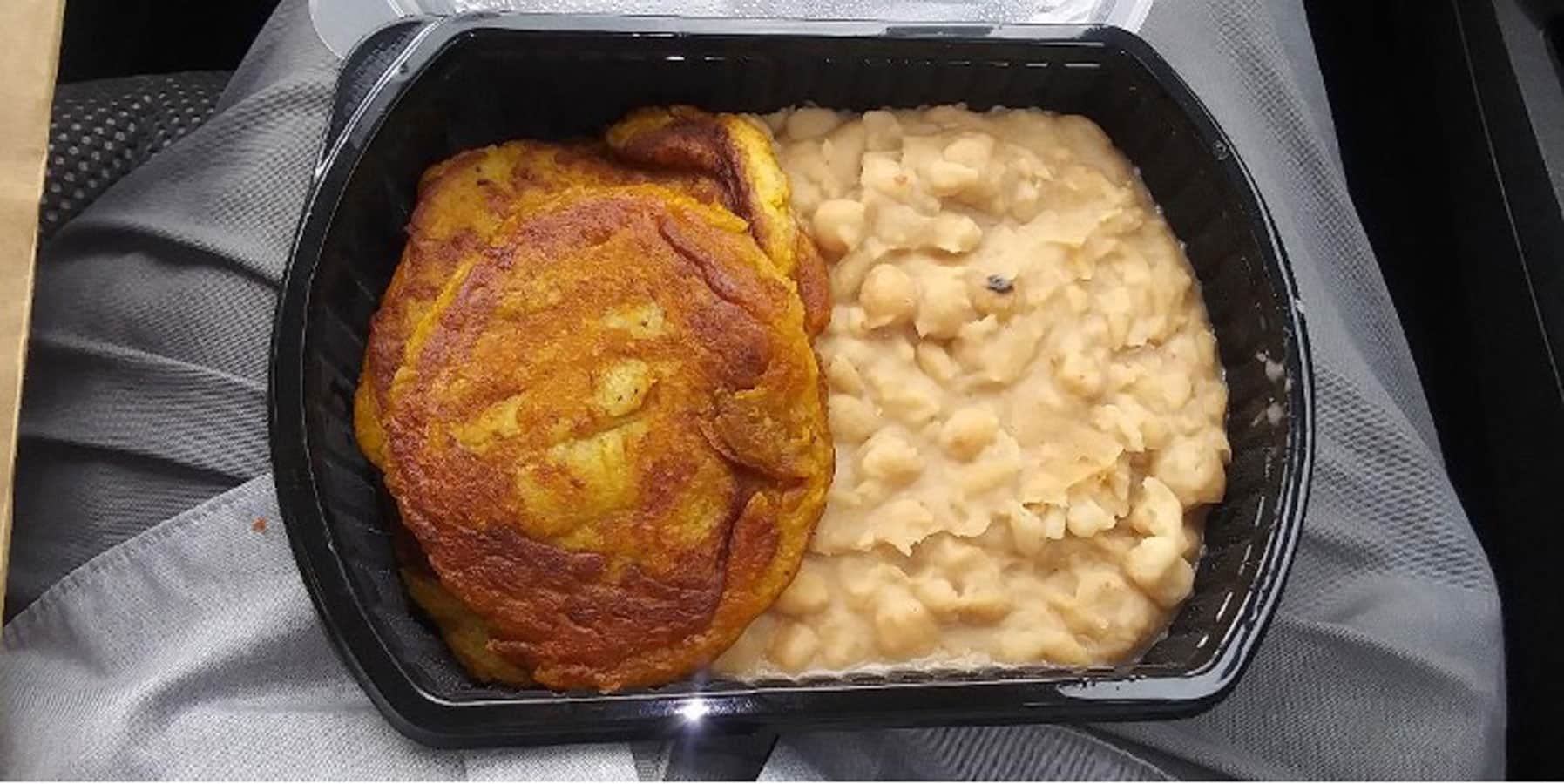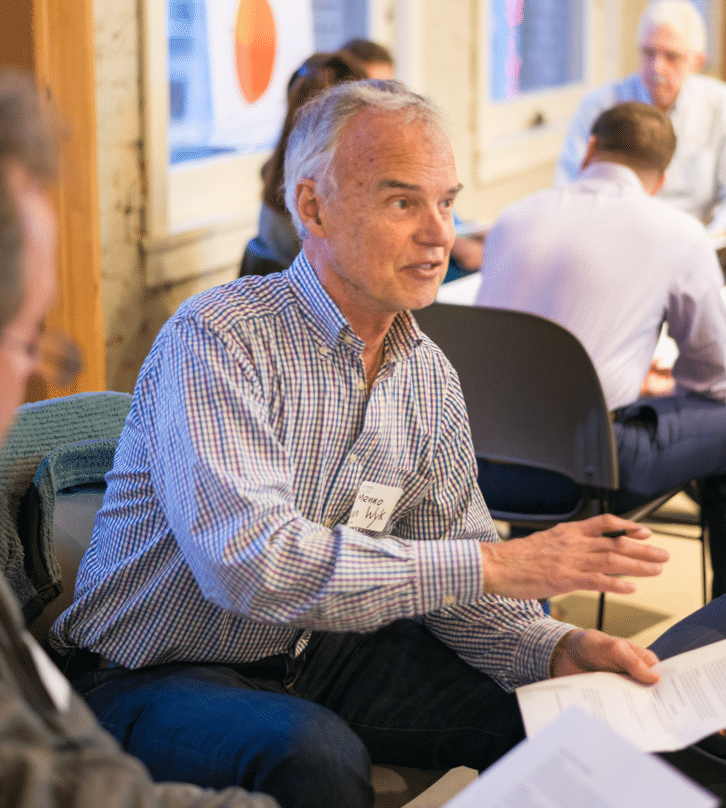Our founder and CEO Peter Kelly said his quest to find somewhere—anywhere—in Ghana’s capital city, Accra, where he could enjoy one of the West African dishes whose ingredients Grow Further grant applicants are studying took longer than he expected.
Red red, or cowpeas with fried plantain, was easy to find and was even served at a Western airport hotel. Pigeon peas were available in stores. But tatale and aboboi, or plantain pancakes with Bambara groundnuts, was more elusive. The closest restaurant listed online or recommended by a guide was closed for a holiday (without which traffic would have made the search take multiple days), the second was permanently closed, and the third didn’t have it. So it was off again, through more traffic, passing countless more women carrying bottled water or other merchandise on their head and selling it to stalled motorists.
“The fourth [restaurant] was very hard to find, but it did have it,” he said. “That was the adventure of the day.”
Peter ordered himself a tray and waited quite some time at the take-out-only restaurant for the Bambara groundnuts, which are a type of bean, to be soaked and cooked. The intrepid traveler finally enjoyed his aboboi lunch in a car.

Sometimes you feel like a groundnut…
Bambara groundnut may have been hard to find, but evidence of the relevance of the work of Grow Further in Ghana was not. As Peter wrote on Linkedin, “The first thing I saw in Ghana after exiting the jet bridge was a billboard that said ‘When you finance farms communities grow’”.
Peter is in West Africa for a very important reason. Grow Further is about to celebrate a long-awaited milestone, and Ghana is the first stop on his historic trip.
After years of building up a management team, organizational structure, and membership base, Grow Further is set to announce the very first recipients of grants made possible by our donor members. These grants will be used to support innovations designed to transform the lives of smallholder farmers in developing nations.
Peter didn’t stay in Accra long. As you’re reading this, he’s now traveling in northern Ghana to visit two teams of agricultural scientists in Tamale, Ghana’s third largest city and the economic center of its north. The research teams welcoming Peter are aiming to harness grant support to perfect and popularize Bambara groundnuts and pigeon peas. If successful, then in a few short years people throughout Ghana and elsewhere may be enjoying these foods at any meal they please. Peter’s visit with them is part of Grow Further’s due diligence work, the final step in the many months we’ve spent reviewing over 700 grant applications.
The Bambara groundnut and pigeon pea are native West African crops known for being drought-tolerant, an important trait to have for crops grown in arid climates where global warming threatens to unleash longer and meaner droughts. By finding the best varieties, easy to cultivate in dry spells and a little easier to serve up on the plate, the Tamale teams believe they can vastly improve Ghana’s food security and resilience to climate change at the same time.
As Peter found (at least anecdotally), developing Bambara groundnut varieties that are easy to prepare for meals will likely be key to making this drought-resistant superfood more popular and more widely available. “What the restaurant owner said was that the Bambara groundnut dish was actually popular, but he agreed that it was hard to find,” Peter said. “I asked him ‘Well why, if it’s so popular, don’t more restaurants offer it?’ and he said ‘Well, it takes a long time to cook the beans.’ That was his hypothesis.”

Next stop: Tanzania
Peter’s work isn’t over. From West Africa, he will next travel to the continent’s east. With any luck, he won’t have to enjoy his first meal at his next destination from the seat of a car. In Tanzania, he will meet another research team in due diligence and travel with them into the field.
It’s an exhausting schedule, but Peter’s spirits are high. “It’s exciting that we’re moving along towards this,” he said.
— Grow Further
Photo credits: Peter Kelly.




